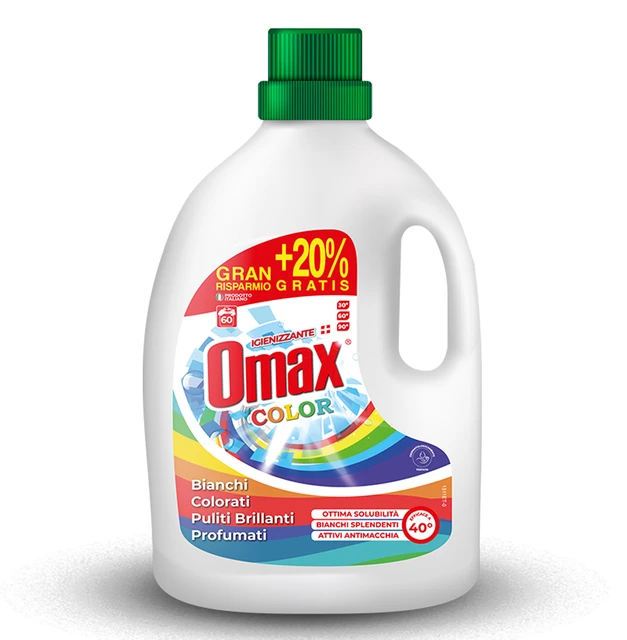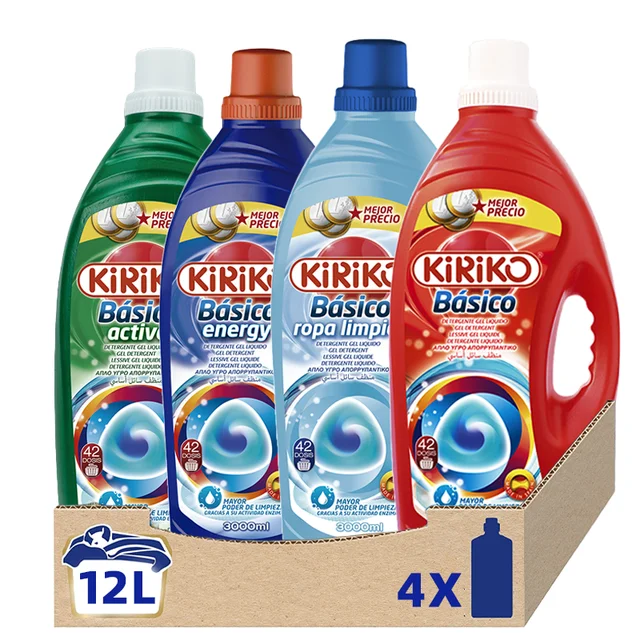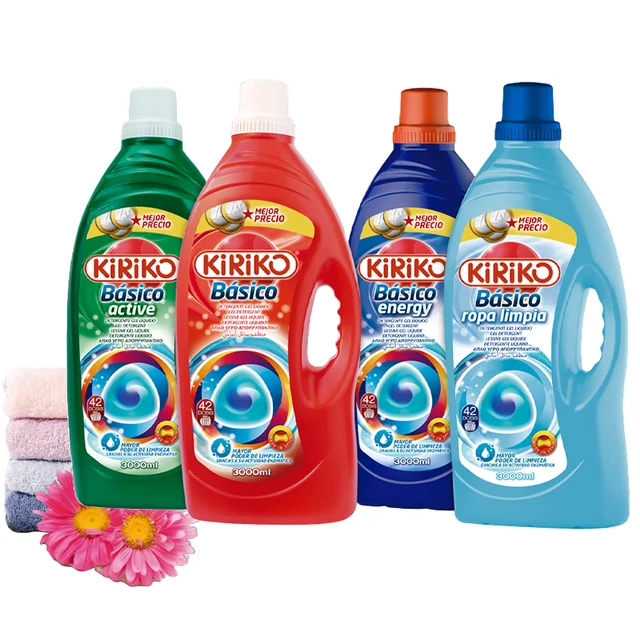 Introduction:
Introduction:
Homemade laundry detergent can be an affordable and eco-friendly alternative to store-bought options. Making your own liquid laundry detergent allows you to control the ingredients, tailor the detergent to your specific needs, and reduce your environmental footprint. In this comprehensive guide, we will provide you with the best homemade liquid laundry detergent recipe, including step-by-step instructions, ingredient options, and tips for optimal performance. By following this guide, you can create a cost-effective and effective laundry detergent that is gentle on your clothes and the planet.
 The popularity of homemade laundry detergent has been driven by a few trends:
The popularity of homemade laundry detergent has been driven by a few trends:
Customization and personalization:
Making your own laundry detergent allows for customization based on personal preferences. Some individuals prefer to add essential oils for fragrance, while others may adjust the recipe to cater to specific sensitivities or allergies. This ability to tailor the detergent to individual needs has contributed to its popularity.
DIY movement and sustainability:
The do-it-yourself (DIY) trend and the growing awareness of sustainability have also played a role in the popularity of homemade laundry detergents. Making your own detergent allows for a sense of self-sufficiency and reduces reliance on commercially produced products, aligning with the desire to live a more sustainable lifestyle.
It’s important to note that while homemade laundry detergents have gained popularity, it’s essential to exercise caution and ensure the ingredients used are appropriate for your specific needs and fabric types. It’s advisable to research and follow trusted recipes and guidelines to make a homemade detergent that effectively cleans clothes while maintaining their quality.
 Understanding Homemade Liquid Laundry Detergent
Understanding Homemade Liquid Laundry Detergent
Benefits of Homemade Laundry Detergent:
Cost Savings: Homemade laundry detergent can be significantly cheaper than store-bought options, especially in the long run.
Customization: You have control over the ingredients and can tailor the detergent to your preferences and needs.
Environmental-Friendly: Homemade detergents often use natural ingredients, reducing your reliance on chemicals and plastic packaging.
Health: For people with sensitive skin, allergic reactions to laundry detergent can be avoided.
Liquid vs. Powder Detergent:
Liquid laundry detergent is easy to make and can be more versatile in terms of usage and storage.
It is suitable for both standard and high-efficiency (HE) washing machines.
Ingredient Choices:
Homemade liquid laundry detergent typically consists of a combination of soap, water, and optional additives.
Soap options include bar soap, castile soap, or grated homemade soap.
 The Best Homemade Liquid Laundry Detergent Recipe
The Best Homemade Liquid Laundry Detergent Recipe
Recipe Ingredients:
1 bar of soap (5-6 ounces)
1 cup of washing soda
1/2 cup of borax
Optional: Essential oils for fragrance
Step-by-Step Instructions:
Grate the bar of soap using a cheese grater or food processor.
In a large pot, combine the grated soap with 6 cups of water.
Place the pot on the stove and heat on low until the soap melts, stirring occasionally.
Add the washing soda and borax to the pot, stirring until dissolved.
Remove the pot from the heat and let it cool for a few minutes.
Slowly add an additional 4 cups of hot water to the pot, stirring well.
Allow the mixture to cool completely and then add essential oils if desired, stirring again.
Transfer the liquid detergent to storage containers, such as a large jug or repurposed detergent bottles.
Use approximately 1/4 to 1/2 cup of detergent per load, adjusting as needed based on load size and dirtiness.
Tips for Optimal Performance
Pre-treating Stains:
For tough stains, consider pre-treating with a stain remover or directly applying a small amount of the detergent to the stain before washing.
Essential Oil Options:
Add a few drops of essential oils, such as lavender, lemon, or tea tree, to provide a pleasant fragrance to your laundry.
Storage and Shelf Life:
Store the homemade detergent in a cool, dark place to prolong its shelf life.
It is recommended to use the detergent within six months to ensure optimal performance.
Laundry Compatibility:
Homemade liquid laundry detergent is generally suitable for standard and HE washing machines.
However, check your washing machine’s manual for any specific recommendations or considerations.
When using homemade laundry detergent, there are a few considerations to keep in mind:
Test on a small area: Before using the homemade detergent on your entire load of laundry, it is advisable to test it on a small, inconspicuous area of fabric. This will help ensure compatibility and avoid any unexpected reactions or damage.
Follow dosage guidelines:
Homemade detergent recipes often provide recommended dosage amounts. Follow these guidelines to ensure that you are using the appropriate amount for your load size. Adjust the dosage if needed based on the level of dirtiness and the size of the load.
Dissolve properly:
Some homemade laundry detergents, particularly powdered ones, may not dissolve completely in cold water. To ensure proper distribution and effectiveness, dissolve the detergent in warm water before adding it to the washing machine.
Store properly:
Homemade laundry detergent should be stored in airtight containers in a cool, dry place. This helps maintain its effectiveness and prevents clumping or moisture absorption.
Consider fabric type:
Homemade detergents may not be suitable for all types of fabrics. It is important to check the care labels on your clothing and fabrics to ensure that they can be safely washed with the homemade detergent.
Adjust expectations:
Homemade laundry detergents may not produce as many suds as commercial ones, but this does not necessarily indicate a lack of effectiveness. Suds do not directly correlate with cleaning power. Focus on the cleanliness and freshness of your clothes rather than the amount of suds produced.
Rinse thoroughly:
Homemade detergents may leave a residue on clothes if not rinsed properly. Ensure that your washing machine provides adequate rinse cycles or consider adding an extra rinse cycle to remove any potential residue.
By keeping these tips in mind, you can effectively and safely use homemade laundry detergent for your clothes. It’s always a good idea to monitor your clothes for any reactions or issues and make adjustments as needed.
 Conclusion:
Conclusion:
Creating your own homemade liquid laundry detergent can be a rewarding and cost-effective alternative to store-bought options. By following the best homemade liquid laundry detergent recipe provided in this guide, you can create a detergent that suits your preferences, needs, and environmental values. Experiment with different bar soaps, essential oils, and storage containers to customize your detergent further. With this homemade detergent, you can achieve clean and fresh-smelling laundry while reducing your environmental impact and saving money.